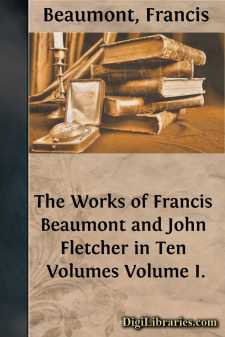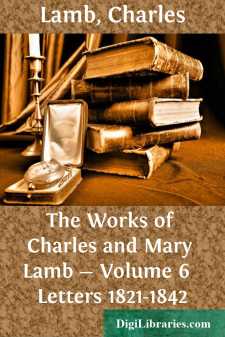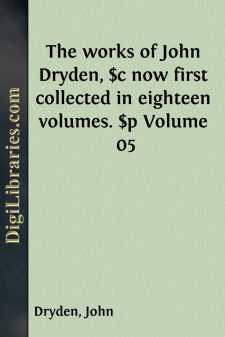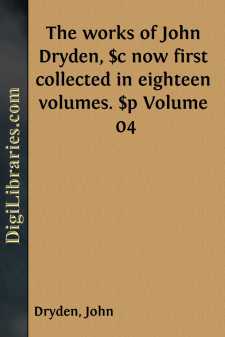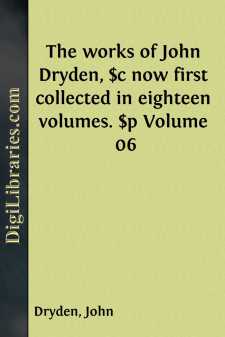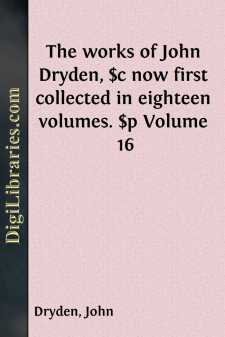Categories
- Antiques & Collectibles 13
- Architecture 36
- Art 48
- Bibles 22
- Biography & Autobiography 813
- Body, Mind & Spirit 142
- Business & Economics 28
- Children's Books 15
- Children's Fiction 12
- Computers 4
- Cooking 94
- Crafts & Hobbies 4
- Drama 346
- Education 46
- Family & Relationships 57
- Fiction 11829
- Games 19
- Gardening 17
- Health & Fitness 34
- History 1377
- House & Home 1
- Humor 147
- Juvenile Fiction 1873
- Juvenile Nonfiction 202
- Language Arts & Disciplines 88
- Law 16
- Literary Collections 686
- Literary Criticism 179
- Mathematics 13
- Medical 41
- Music 40
- Nature 179
- Non-Classifiable 1768
- Performing Arts 7
- Periodicals 1453
- Philosophy 64
- Photography 2
- Poetry 896
- Political Science 203
- Psychology 42
- Reference 154
- Religion 513
- Science 126
- Self-Help 84
- Social Science 81
- Sports & Recreation 34
- Study Aids 3
- Technology & Engineering 59
- Transportation 23
- Travel 463
- True Crime 29
Sort by:
by:
Henry Fielding
PROLOGUE, SPOKEN BY MR JONES Too long the Tragick Muse hath aw'd the stage,And frighten'd wives and children with her rage,Too long Drawcansir roars, Parthenope weeps,While ev'ry lady cries, and critick sleepsWith ghosts, rapes, murders, tender hearts they wound,Or else, like thunder, terrify with soundWhen the skill'd actress to her weeping eyes,With artful sigh, the handkerchief...
more...
by:
Francis Beaumont
TO THE READER. Poetry is the Child of Nature, which regulated and made beautifull by Art, presenteth the most Harmonious of all other compositions; among which (if we rightly consider) the Dramaticall is the most absolute, in regard of those transcendent Abilities, which should waite upon the_ Composer; who must have more then the instruction of Libraries which of it selfe is but a cold contemplative...
more...
by:
Charles Lamb
LETTER 264 CHARLES LAMB TO DOROTHY WORDSWORTH [P.M. January 8, 1821.] Mary perfectly approves of the appropriat'n of the feathers, and wishes them Peacocks for your fair niece's sake! Dear Miss Wordsworth, I had just written the above endearing words when Monkhouse tapped me on the shoulder with an invitation to cold goose pye, which I was not Bird of that sort enough to decline. Mrs. M. I am...
more...
by:
John Dryden
DUKE OF GUISE. A TRAGEDY. Ουτως δε φιλοτιμοι φυσεις εν ταις πολιτειαις το αγαν μη φυλαξαμεναι, τωιαγαθου μειζον το κακον εχουσι. Plutarch. in Agesilao.003In the latter part of Charles the Second's reign, the stage, as well as every other engine which could affect the popular mind, was eagerly employed in the...
more...
by:
John Dryden
AMBOYNA. The tragedy of Amboyna, as it was justly termed by the English of the seventeenth century, was of itself too dreadful to be heightened by the mimic horrors of the stage. The reader may be reminded, that by three several treaties in the years 1613, 1615, and 1619, it was agreed betwixt England and Holland, that the English should enjoy one-third of the trade of the spice islands. For this...
more...
by:
John Dryden
SCENE.—London. ACT I. SCENE I.—FAILER entering to BURR, who is putting on his buff-coat. Fail. What! not ready yet, man? Burr. You do not consider my voyage from Holland last night. Fail. Pish, a mere ferry; get up, get up: My cousin's maids will come and blanket thee anon; art thou not ashamed to lie a-bed so long? Burr. I may be more ashamed to rise; and so you'll say, dear heart, if...
more...
by:
John Dryden
THE CONQUEST OF GRANADA. This play,—for the two parts only constitute an entire drama betwixt them,—seems to have been a favourite with Dryden, as well as with the public. In the Essay upon Heroic Plays, as well as in the dedication, the character of Almanzor is dwelt upon with that degree of complacency which an author experiences in analyzing a successful effort of his genius. Unquestionably the...
more...
by:
John Dryden
LIMBERHAM. The extreme indelicacy of this play would, in the present times furnish ample and most just grounds for the unfavourable reception it met with from the public. But in the reign of Charles II. many plays were applauded, in which the painting is, at least, as coarse as that of Dryden. "Bellamira, or the Mistress," a gross translation by Sir Charles Sedley of Terence's...
more...
PREFACE Two great collections of Byron's letters have been already printed. In Moore's 'Life', which appeared in 1830, 561 were given. These, in FitzGreene Halleck's American edition of Byron's 'Works', published in 1847, were increased to 635. The first volume of a third collection, edited by Mr. W. E. Henley, appeared early in 1897. A comparison of the number...
more...
by:
John Dryden
His birth. His natural endowments, and first studies. His father purposes to recal him from his studies, and is diverted from that resolution. He continues his studies, and sets up a philosophy lecture. He is preserved from falling into heresy. His change of life. His retirement, and total conversion. He consecrates himself to God, by a vow. What happened to him in his journey to Venice. What he did at...
more...



